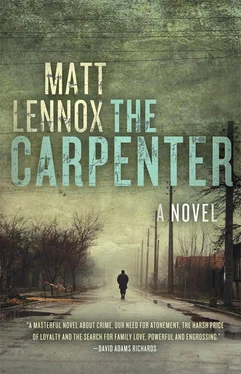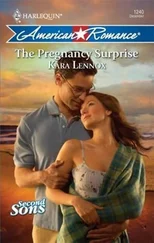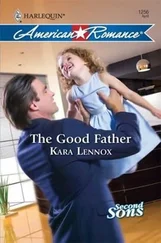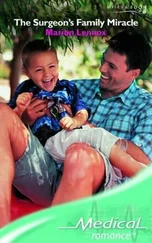Matt Lennox - The Carpenter
Здесь есть возможность читать онлайн «Matt Lennox - The Carpenter» весь текст электронной книги совершенно бесплатно (целиком полную версию без сокращений). В некоторых случаях можно слушать аудио, скачать через торрент в формате fb2 и присутствует краткое содержание. Жанр: Криминальный детектив, на английском языке. Описание произведения, (предисловие) а так же отзывы посетителей доступны на портале библиотеки ЛибКат.
- Название:The Carpenter
- Автор:
- Жанр:
- Год:неизвестен
- ISBN:нет данных
- Рейтинг книги:5 / 5. Голосов: 1
-
Избранное:Добавить в избранное
- Отзывы:
-
Ваша оценка:
- 100
- 1
- 2
- 3
- 4
- 5
The Carpenter: краткое содержание, описание и аннотация
Предлагаем к чтению аннотацию, описание, краткое содержание или предисловие (зависит от того, что написал сам автор книги «The Carpenter»). Если вы не нашли необходимую информацию о книге — напишите в комментариях, мы постараемся отыскать её.
The Carpenter — читать онлайн бесплатно полную книгу (весь текст) целиком
Ниже представлен текст книги, разбитый по страницам. Система сохранения места последней прочитанной страницы, позволяет с удобством читать онлайн бесплатно книгу «The Carpenter», без необходимости каждый раз заново искать на чём Вы остановились. Поставьте закладку, и сможете в любой момент перейти на страницу, на которой закончили чтение.
Интервал:
Закладка:
Matt Lennox
The Carpenter
ONE
SEPTEMBER TO OCTOBER 1980
Leland King was back in town. He hadn’t yet figured out what to make of that.
He’d arrived on the bus in the midafternoon on Labour Day, and had gone directly to a bachelor apartment that Pastor Barry had arranged for him. The apartment was above a variety store at the bottom of Union Street, near the south end of the town’s lakefront. Across the street was the back of an A amp;P grocery. Beside the variety store, past a patch of grass, was a fence around a small scrapyard.
All of Lee’s earthly possessions amounted to the clothes on his back and one suitcase and a wallet and cigarettes and a plastic lighter. The apartment contained some furniture abandoned by the outgoing tenant. A swivel chair. A pullout couch. A lamp with an anchor motif on the shade. There were pale patches on the walls where pictures had hung, and from the bathroom came a steady hiss. Nothing was square or level.
The variety store owner was also the landlord. His name was Mr. Yoon and he was one of Pastor Barry’s congregants. Mr. Yoon curtly told Lee a few of the rules, how he didn’t want loud noises or trouble. He wanted to know if Lee had a job.
— I have a job, said Lee. I’m a carpenter. Cabinets, counters, doors, windows, trim. All kinds of joining, you name it. I got my trade, boss. Barry got me working with a guy here in town. I start on Thursday.
Lee paid his month’s rent in cash and Mr. Yoon gave him a new-cut key.
Thirty minutes later, Lee took a taxicab out to his sister Donna’s house. He had a return address torn off an envelope. She’d not written often, and in the last few years almost not at all. It was Pastor Barry who’d done most of the writing.
The taxi driver had the radio on. Between songs, there was a news break recapping the events of the long weekend. The top story was an interview with that kid from out west … Near the end of the day, the kid was saying, eighteen miles, I was coughing and choking, had pain in my neck and my chest …
— You know who that is? said the taxi driver.
— Who?
— It’s that one-legged kid who tried to run acrost the country. What’s his name, Fox. Terry or what-have-you. He’s been all over the news.
The kid on the radio: All I can say is, if there’s any way I can get out there again and finish it, I will …
— What a crazy bastard, said the taxi driver. Trying to run acrost the country with one leg. Sounds like they’re pulling him off the road.
— Sounds like it, said Lee.
The taxi driver droned on about other things, the weather, politics. Lee wasn’t paying him much attention. What he was remembering of these parts was how August could be cold or September could be hot, as it was now, even when the leaves showed a silver edge that heralded the coming autumn. They passed a drying cornfield and a line of hydro towers. On the edge of the road was the crushed hull of a snapping turtle. It looked like someone had swerved to hit it.
The hometown to which Lee had returned was situated on the edge of Lake Kissinaw. Half an hour to the east was a smaller body of water called Indian Lake. The Indian River flowed back west from the smaller lake, pouring into Kissinaw, and dividing the town in half. Eighteen thousand people lived in Lee’s hometown, and made their livings in manufacturing and farming and summer tourism. On the northwest edge of town was a CIL chemical factory that had produced munitions during the war years. Lee sometimes wondered what he might have ended up doing with himself, had he remained here. Coming back now, at this time in his life, was stirring up a lot of strange feelings.
The taxi driver was talking about hockey, what did Lee think of this season’s trades. Lee had a vague notion to lean up between the seats and tell the driver that he sounded like a goof, talking all this bullshit. Instead he just muttered a noncommittal response.
Half a mile later they came to the house. It stood on two acres of shaggy lawn. It was sided in white vinyl with three wooden butterflies fixed to the front wall. The driver tallied a charge of six dollars. Lee opened his wallet. His cash felt desperately precious. He paid six dollars precisely. The driver gave him a strange look, expectant. The engine idled. Lee’s mouth felt dry.
— Well, said Lee. Maybe that one-legged kid will get back on the road.
The driver just shook his head. Lee got out and the taxi moved forward and turned around and headed back the way they’d come. The buzz of a cicada rose and peaked.
As Lee made his way up the walk, the front door opened, but it wasn’t Donna who came out. It was his mother, Irene. She came onto the stoop, pushing on a rubber-footed cane, and took the first steps down with great care. Lee could hear her long and shallow breathing. She stopped once to look at him. He arrived at the base of the stoop and they came together. She was panting for breath and her eyes were wet.
— Here you are.
— Hello, Ma.
She put her frail arms around him.
Behind her, Donna appeared on the stoop. Donna was thin and knobby-kneed in a pair of canvas shorts and a cotton shirt. Irene released him and stood back.
— I don’t know what to say.
— Don’t say nothing at all.
— You’re working too hard, Mom, said Donna. You shouldn’t of done the stairs.
Lee nodded and said: Donna’s right, Ma.
— Come in, said Irene. It’s too hot.
Lee led Irene up the stoop. At the top, Donna did not meet his eye. In a small voice, she said: It’s good to see you.
And then, abruptly, she embraced him. She smelled of soap. Lee felt the fabric of her shirt over her shoulder bones.
As Donna helped Irene into the house, Lee looked at a wooden plaque on the front door: AS FOR MY HOUSE, WE SHALL SERVE THE LORD.
What he first saw in the living room were three different crosses. One was a simple rood. One was a framed needlepoint depiction of Golgotha. Finally, there was a cross of macaroni glued onto a paper plate, hung over the entranceway into the kitchen.
Two young boys, maybe seven or eight, hurtled into the living room, one chasing the other. They stormed past Lee, shouting, and angled down the basement stairs. Donna paled. She leaned over the banister and yelled after them: Boys, what are you doing? Don’t run in the house. You’ll upset Grandma’s tubes.
She cast a helpless look at Lee and Irene. Lee badly wanted a cigarette but he’d heard you didn’t smoke in people’s homes any more unless they invited you to.
Irene struggled into an easy chair. Beside her was an oxygen cylinder on a slender dolly, with a nasal tube at the end of a hose. Lee went over and picked up the tube and held it. He felt stupid, holding the unfamiliar equipment. Almost immediately Donna came and took it from him.
— She’s okay, Lee. She just shouldn’t of done the stairs.
And then Pastor Barry came into the room. He was wearing corduroy trousers and a cotton T-shirt and tennis shoes. He was ten inches shorter than Donna. He spread his arms.
— Leland. Welcome.
— Good to see you, Barry.
Barry embraced him. Lee looked down at the top of Barry’s head. Barry stood back.
— I’m afraid I don’t have beer.
— No problem. You know I’m dry.
— I do. And it makes me happy to hear it. Was everything in good shape with Mr. Yoon? I had him leave some things in the apartment. I thought they might make you a little more comfortable. It’s a simple place, but simple never harmed anybody. I can think of one guy in particular who didn’t mind a simple bed.
— Simple as can be, said Lee.
Lee was given a glass of lemonade. Desperate for a cigarette, he went out onto a deck overlooking the backyard. There was a swing set and a sandbox and a wood-line on the far edge of the property. He wandered down to the grass. He put the lemonade down beside him and lit a cigarette. For the moment, he was alone. He took off his shoes. His big toe poked through a hole in his sock. He looked around and then he stripped off the socks and flexed his feet in the grass. He picked up his lemonade and walked down to the wood-line. He wondered how much he’d expected them to look different, his mother and Donna. To be different. Or had he expected them to be the same, somehow? What had he expected at all? Along the wood-line, the trees were pine and the smell of sap was strong, cut pleasantly by the cigarette smoke. Needles blanketed the ground. A chipmunk stuttered past and branches creaked and insects whined and a hawk circled overhead.
Читать дальшеИнтервал:
Закладка:
Похожие книги на «The Carpenter»
Представляем Вашему вниманию похожие книги на «The Carpenter» списком для выбора. Мы отобрали схожую по названию и смыслу литературу в надежде предоставить читателям больше вариантов отыскать новые, интересные, ещё непрочитанные произведения.
Обсуждение, отзывы о книге «The Carpenter» и просто собственные мнения читателей. Оставьте ваши комментарии, напишите, что Вы думаете о произведении, его смысле или главных героях. Укажите что конкретно понравилось, а что нет, и почему Вы так считаете.












